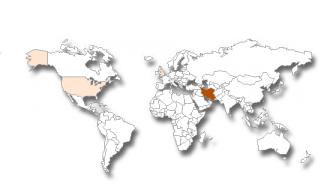
Symantec has spotted another odd piece of malware that appears to be targeting Iran and is designed to meddle with SQL databases.
The company discovered the malware, called W32.Narilam, on Nov. 15 but on Friday published a more detailed writeup by Shunichi Imano. Narilam is rated as a “low risk” by the company, but according to a map, the majority of infections are concentrated in Iran, with a few in the U.K., the continental U.S. and the state of Alaska.
Interestingly, Narilam shares some similarities with Stuxnet, the malware targeted at Iran that disrupted its uranium refinement capabilities by interfering with industrial software that ran its centrifuges. Like Stuxnet, Narilam is also a worm, spreading through removable drives and network file shares, Imano wrote.
Once on a machine, it looks for Microsoft SQL databases. It then hunts for specific words in the SQL database — some of which are in Persian, Iran’s main language — and replaces items in the database with random values or deletes certain fields.
Some of the words include “hesabjari,” which means current account; “pasandaz,” which means savings; and “asnad,” which means financial bond, Imano wrote.
“The malware does not have any functionality to steal information from the infected system and appears to be programmed specifically to damage the data held within the targeted database,” Imano wrote. “Given the types of objects that the threat searches for, the targeted databases seem to be related to ordering, accounting, or customer management systems belonging to corporations.”
The types of databases sought by Narilam are unlikely to be employed by home users. But Narilam could be a headache for companies that use SQL databases but do not keep backups.
“The affected organisation will likely suffer significant disruption and even financial loss while restoring the database,” Imano wrote. “As the malware is aimed at sabotaging the affected database and does not make a copy of the original database first, those affected by this threat will have a long road to recovery ahead of them.”
Stuxnet is widely believed to have been created by the U.S. and Israel with the intent of slowing down Iran’s nuclear program. Since its discovery in June 2010, researchers have linked it to other malware including Duqu and Flame, indicating a long-running espionage and sabotage campaign that has prompted concern over escalating cyber conflict between nations.





